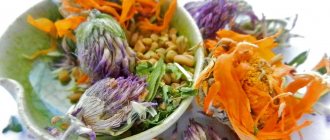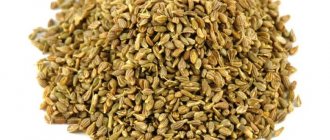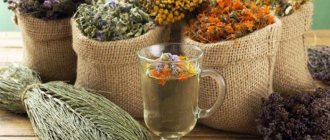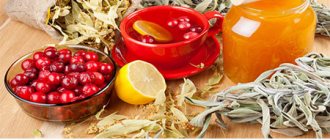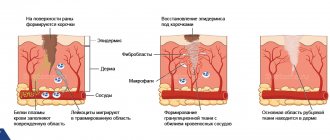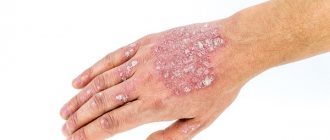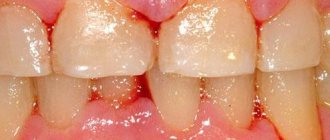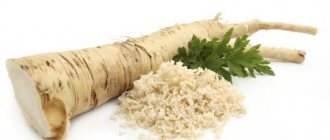Pneumonia is generally characterized by high fever, cough, shortness of breath and chills. Pain in the chest is possible. Patients' performance decreases, they quickly get tired, suffer from sleep disturbances, sweating, and lack of appetite. A cough with pneumonia is often accompanied by sputum discharge. When listening, wheezing is heard. Changes in skin color, headaches and fainting are possible.
The worst thing about pneumonia is the absence of symptoms. Cases of asymptomatic disease are quite common, so if you have any suspicions, it is best to consult a doctor who will prescribe tests and fluoroscopy of the lungs. The latter method is the most accurate in diagnosing inflammation of the lung tissue.
However, there are times when even a chest x-ray does not provide the necessary information. Then a computed tomography scan of the lungs is prescribed. It is necessary if:
- X-ray does not allow identifying foci of the inflammatory process with all signs of the acute stage of the disease;
- the disease often recurs, and the source of inflammation is always in one place;
- The X-ray image does not correspond to the symptoms of the disease.
In addition to X-rays and CT scans, blood and sputum tests are performed. A bronchoscopy procedure may be prescribed. It is quite unpleasant, but allows you to study the bronchi using a thin tube.
During bronchoscopy, the doctor can take samples of mucus from the site of inflammation, which makes the diagnosis more accurate.
Bee products
Perhaps all people know that honey should be consumed for colds. It is used both internally and as an external remedy; it is a component of many folk recipes.
The healing properties of the sweet product are explained by the presence of special substances in the nectar that act as natural antibiotics. In addition, bees repeatedly pass it through their crop to enrich it with special enzymes.
The note. Honey exhibits bactericidal properties. It contains special substances that prevent the development of microbes. As an example of an antibacterial effect, the following fact can be cited: the body of Alexander the Great, killed in battle, was delivered to Alexandria, completely immersed in nectar processed by bees.
Pollen is a protein food for insects, which they feed to growing larvae. It contains the entire spectrum of vitamins and quite a lot of amino acids, which makes the product useful for the human body
Male plant gametes have a powerful stimulating effect on the immune system, and this is extremely important in the treatment of any inflammatory processes
Bees collect propolis from tree buds and rub it on everything inside the hive: the entrance, floor, walls and honeycombs. This is done in order to prevent the development of any pathogenic microflora, because bee glue is a powerful antiseptic. For example, if a mouse climbs into a nest and dies from bites, then the insects embalm it with propolis, and in this form the animal does not decompose.
Royal jelly is a secretion of the maxillary glands. Working individuals feed it exclusively to queens and larvae, from which the latter hatch. The price of the native product is very high.
Preparations based on it are prescribed to pregnant and lactating women, as well as to people who are severely weakened after serious illnesses and are in the rehabilitation stage. Recommendations for the use of apiary gifts in the treatment of pneumonia are indicated in the table.
Important. People with allergies and bronchial asthma should not use beekeeping products.
Propolis
Properties
Propolis is a substance that bees use as cement or glue. Scientists claim that this product contains about 200 compounds. Many of them are extremely beneficial for the human body: flavonoids, acids, vitamins, oils.
So, what is good about propolis:
- has an antiseptic effect,
- improves blood circulation,
- mobilizes and strengthens the immune system,
- helps tissues recover.
Treatment methods
Propolis for pneumonia is used as follows:
- In the form of a tincture, which you can purchase or prepare yourself. Use as follows: dilute 10-40 drops (the amount corresponds to the patient’s age) of a 20% tincture in a small amount of water or milk and take before meals. Take during illness and during recovery.
- In oil form. To make it, you need to take vegetable (olive, sunflower) or butter and mix it with propolis. The resulting product can be spread on bread and washed down with milk. Naturally, this option is appropriate if the patient’s condition is not very serious.
- Propolis tincture can be mixed with a number of plants: fennel, licorice, primrose and so on. This “mix” is used to make tea.
- Propolis tincture is used to create compresses (for external use). The same tincture with 20% alcohol is diluted 2 to 1 with boiled water and applied to the chest and rubbed with light movements until absorbed.
- Chew propolis in small pieces of 1-2 grams. Chew until completely crushed for a week.
Good to know. In its pure form, the substance is poorly absorbed, only a few percent. To improve the quality of absorption, it is necessary to use the tincture.
Contraindications
- Propolis becomes poison if its quantity is too large. The drug has a positive effect on the immune system only if taken for less than 30 days. Long-term use suppresses the immune and nervous systems.
- Propolis often causes allergies. It manifests itself in different ways: from redness of the skin to swelling. If a patient doesn't know if they have an allergy, the easiest way to check is with a skin test. You need to apply a small amount of the substance to the epidermis. The reaction appears either instantly, or after some time - up to 2 hours.
Important! Honey and propolis should be used with particular caution when it comes to treating children. These remedies should not be used if health problems occur in a child who is under 3 years of age.
How to treat pneumonia with folk remedies
Treatment of pneumonia with folk remedies must be discussed with your doctor. A specialist may recommend the simultaneous use of different techniques, which will only increase the effectiveness of therapy. Medicinal herbs, fats, bee products, dried fruits, cereals and other natural ingredients are used in treatment.
Raisin decoction
You should drink this decoction three times a day until all symptoms disappear completely. The decoction turns out to be very tasty, so not only adults, but also small children drink it with great pleasure. Adults and children over 12 years old drink half a glass of raisin drink, younger children are given 1/3 glass.
Medicine from aloe and birch buds
The most popular recipe is considered to be a potion based on aloe juice, birch buds and bee products. To make a medicinal composition you need to take the following ingredients:
- Fresh aloe juice – 1 glass;
- Birch buds - 2 full tablespoons;
- Eryngium leaves - 3 tablespoons;
- Propolis – 1 kg;
- Honey – 1 kg.
You can prepare the drug according to this recipe. Place all ingredients in a small saucepan, place in a water bath and boil until smooth for 20 minutes, then pour into a glass jar with a tightly sealed lid and store in the refrigerator.
Take the drug one tablespoon 3 times a day, after dissolving it in a glass of hot milk. Depending on age, children are given from a teaspoon to a dessert spoon.
Fig drink
You should drink fig milk twice a day. It is better to start such treatment from the first symptoms of pneumonia. If desired, you can add a little honey to the milk drink.
Composition with cocoa and lard
At home, you can treat pneumonia with a delicious paste made from lard, honey and cocoa. To prepare the medicine you should take the following components:
- Pork lard – 400 grams;
- High fat butter – 100 grams;
- Honey – 400 grams;
- Sugar – 400 grams;
- Egg yolks – 8 pieces;
- Heavy cream - 3 cups.
All components are thoroughly mixed and beaten a little. Place in a water bath and boil until the mass becomes homogeneous. Next, pour the composition into a glass container, cool and place in the refrigerator. Adults take a tablespoon 3 times a day with hot milk or tea. Children are given a teaspoon of this paste.
The course of treatment should be at least two weeks. Even after the main symptoms disappear, they continue to use the drug for several more days.
Inhalations with horseradish
You can add a small amount of medical alcohol to the horseradish root pulp and then inhale the vapors. This treatment allows you to quickly get rid of coughing and asthma attacks.
Garlic oil
To prepare this composition, you need to take a large head of garlic and a stick of fatty butter. Garlic is grated on a fine grater and ground with a small amount of salt. Then add soft butter little by little and mix well.
You can prepare the medicine not only with butter, but also with pork lard. The finished paste is spread on a piece of black bread or mixed with first courses.
Badger fat
You can prepare a potion from badger fat and currant jam. In this case, the lard is left for a couple of hours at room temperature, and then thoroughly mixed with the jam.
Tar water
This ancient remedy helps to quickly cure pneumonia in patients of all age groups. You need to take 0.5 liters of medical tar, pour it into a three-liter jar and add hot water to the top. The jar is well closed and placed in a dark place for a week to infuse. After this, adults drink a tablespoon at night, and children are given a teaspoon.
Folk remedies for pneumonia will help strengthen the body and speed up recovery. In order for the treatment to be not only effective, but also safe, you should adhere to the recipe and all the doctor’s recommendations that he gives to the patient.
Treatment of pneumonia with potatoes
In Russia, potatoes never leave the table. It is not surprising that people are trying to treat all sorts of diseases with this valuable vegetable. Traditional medicine did not ignore it either. Here are several folk remedies using potatoes for pneumonia:
- No. 1. Take 4 medium potatoes:
- wash,
- cut out the eyes, but do not clean them;
- cut into cubes;
- add 2 tablespoons of flax seeds;
- a head of garlic, crushed into pulp;
- pour 1 liter of water.
- No. 2. When treating pneumonia, along with the main treatment, potato wrapping is recommended:
- sew a bag;
- put freshly boiled potatoes in their skins;
- first crush it and mix with 1 tablespoon of vegetable oil;
- 1 tablespoon alcohol
- and 1 tablespoon of mustard.
Cook in a sealed container over low heat for 20 minutes. After cooling to 30°C, use the decoction for enemas. Give an enema 2 times a day until complete recovery;
Apply the hottest bag to the source of the disease (bypassing the area of the heart, as in all thermal external procedures), wrap it in cellophane, cover it with warm clothes and bandage it on top. Placed overnight, such a compress will remain hot until the morning.
Treating pneumonia at home
Let's start by watching the video “Treatment of pneumonia with folk remedies.”
Let's consider the treatment of pneumonia with folk remedies, the most effective recipes of traditional medicine.
Treatment of pneumonia: traditional medicine recipes for internal use
- For pneumonia, it is recommended to use valerian root powder 1-2 g per dose and no more than 3-4 times a day.
- Pour 10 g of lungwort herb (lungwort) into 1 cup of boiling water. Leave for 30-40 minutes. Take 1 tbsp. l. 3 times a day.
- Budra ivy leaves - 2 tbsp. l., black poplar buds - 2 tbsp. l., black elderberry flowers - 1 tbsp. l. Mix all the components of the collection, leave for 2 hours in 3 glasses of boiling water and drink in 5 doses during the day. Continue this treatment for 4-5 weeks.
- Leaves of budra ivy, root of European hoof, cocklebur herb - 1 tbsp. l. Pour the collection with 3 cups of boiling water, leave for 2-3 hours, strain and drink in 5 doses during the day. Continue treatment for 2 weeks.
- Leaves and flowers of coltsfoot, crushed dry roots of comfrey, linden blossom, black elderberry flowers, rhizomes of creeping wheatgrass, flowers of scepter-shaped mullein - in equal quantities. 1 tbsp. l. (with top) of the collection, pour 1 cup of boiling water, leave for 1-2 hours, strain, take 1/2 cup 4 times a day before meals for 2-3 weeks.
Treatment of pneumonia: traditional medicine recipes for external use
- Boil wheat bran in a very large amount of water until the solution becomes homogeneous and thickens. Spread the resulting mush onto a piece of cotton (or better yet, linen) cloth with a layer of 2 cm. Grate fresh garlic and sprinkle on top of the layer of mush. Fold the fabric in half and apply it to the patient's chest. Keep the compress until it cools down. The patient should be insulated so that the heat of the compress lasts for at least 2 hours.
- Take a head of cabbage, select 3-4 strong, juicy leaves, put them in boiling water for 5 minutes, but do not boil. Take out the leaves, mash them with a wooden rolling pin, rough veins on the leaves can be cut off with a knife. Apply hot leaves to the base of the neck and chest, secure with cotton or linen cloth on top. Keep the leaves until they are completely cooled.
Traditional and alternative medicine offer a large number of medications and recipes for the treatment of pneumonia. However, before you start treating pneumonia with folk remedies at home, it is advisable to consult a doctor. He will tell you which remedy is suitable specifically for your case. Be healthy!
Treatment of pneumonia with pine
In folk medicine, pine is especially popular in the treatment of pneumonia. If you use these folk recipes to prevent pneumonia, you are guaranteed to never get sick.
The unique properties of pine make it possible to treat not only pneumonia. Together with it, the digestive, vascular, and endocrine systems are treated in parallel. The composition of the blood is put in order, its sugar is normalized, the vessels are cleared of plaques, and so on.
These are traditional medicines for treating the whole body, including pneumonia.
Recipe No. 1: The best folk remedy for pneumonia is green pine tincture with honey
Collect green pine cones. Pour honey over the pine cones and leave for 2-3 months. For 2 kg of cones 1 kg of honey. After steeping, drain the finished syrup through a fine sieve. It turns out sweet and sour, a completely unique remedy for many diseases.
Take 1 tablespoon 3-4 times a day before meals, for diseases of the throat, bronchi and lungs. For pneumonia, drink a quarter glass 3 times a day for 1 day. On the second day, 20 milliliters of syrup also three times. In the following days, 1 tablespoon three times a day.
Improvement occurs within 3-5 days. Learn more about the preparation (Pine Elixir) or buy the product in our store.
Recipe No. 2: Treatment with pine kvass
Prepare 1-3 summer pine branches. Finely chop. Pour boiling water (3 liters) into 3 cups of raw materials. Allow to cool to room temperature. Add 2/3 cup honey or sugar, add yeast (1 tablespoon). Leave to ferment. After 1 day, drain through cheesecloth.
Keep refrigerated. Drink 1/3 - 2/3 glass 3-4 times a day 30 minutes before meals. The remedy treats chronic bronchitis, pneumonia and lung diseases, and improves immunity. Read more...
Recipe No. 3: Tincture of green pine cones
Prepare green pine cones. Pour vodka over the cones and leave for 30-40 days. For 1 kg of cones, 1 liter of vodka. After steeping, drain through cheesecloth.
Use 1 tablespoon 3-4 times a day. 30 minutes before meals for cough, flu, bronchitis, pneumonia. Read more about the recipe or you can buy it ready-made.
Store the product in a dark place without access to light. (The tincture contains many trace elements. Under the influence of light, some of them oxidize. Although this does not affect the medicinal properties, it is better to store it in the dark)
Recipe No. 4: Pine inhalations
Recipe No. 4 - Pine inhalations: Add 3-4 drops of fir oil to an enamel pan with boiling water, inhale the steam, covering your head.
After inhalation, rub the oil on your chest and cover with a warm blanket. For inhalation, you can also use the Macholda inhaler.
Recipe No. 5: Pine buds
Mix 1 part of pine buds. 2 parts violet root and 4 parts Icelandic moss. Pour 1 glass of cold water into 4 teaspoons of the mixture.
Leave for 2 hours, boil for 4 minutes, cool and strain. To treat pneumonia, drink the product warm 3 times a day.
Herbal medicine for pneumonia
Herbal preparations for the treatment of inflammatory processes in the lungs are highly effective, while they are safe for use (provided there are no allergies) and are available to all categories of patients. Before using any herbs and plants, you should consult your doctor, as some types of plants can aggravate existing chronic diseases.
The most effective recipe
This recipe can treat even severe forms of pneumonia with the formation of pus. The product is also suitable for the treatment of bilateral inflammation. The collection has a pronounced expectorant effect: plant components increase the formation of mucus, due to which sputum is diluted and its removal from the respiratory tract is facilitated. To prepare the medicine you will need:
- eryngium (leaves) – 60 g;
- birch buds, pre-crushed – 40 g;
- aloe juice – 1 glass;
- propolis oil – 1 kg;
- honey (liquid) – 1 l.
Ingredients for preparing medicine to treat pneumonia
Combine all ingredients in an enamel saucepan and place over medium heat. Cook the mixture for 10-15 minutes. Store the resulting mixture in the refrigerator (pour into two bottles). You need to take the product 2 times a day. Single dosage – 1 glass. Treatment must be continued until symptoms disappear completely and for another 2-3 days after recovery. It usually takes 7-10 days.
Chamomile with vodka
Chamomile is the most famous medicinal plant used to treat respiratory diseases. Chamomile flowers contain a large amount of tannins and are an excellent antiseptic that destroys pathogens and disinfects mucous membranes. Chamomile helps to quickly stop the inflammatory process, relieve pain and prevent the development of the pathological process. In addition, chamomile essential oils accelerate the healing of damaged mucous membranes in the lungs and soothe irritated organs.
To prepare chamomile tincture, you need:
- Grind 100 g of dried raw materials (inflorescences) and pour 70 ml of vodka;
- put in a dark place and leave for 7 days;
- strain using gauze cloth.
Parsnip decoction
To prepare the decoction, add 1 tablespoon of chopped parsnip to 200 ml of water and cook for 15 minutes over low heat. The product is ready for use after straining and cooling. You need to take a tablespoon of the decoction 3 times a day for 10 days. Parsnips help ease breathing and are an excellent natural analgesic, so the severity of pain during coughing or inhalation decreases already on the 2-3rd day of using the decoction.
Traditional medicine recipes for pneumonia
In folk medicine you can find many drugs for the treatment of pneumonia.
There is no universal recipe. There are means to relieve inflammation, remove phlegm from the lungs, eliminate pathogens, reduce cough, increase immunity, and so on.
For treatment to be effective, general recommendations regarding the patient’s regimen must be followed:
- The patient should be provided with bed rest.
- Drink plenty of fluids.
- If there is no severe cough, you can take warm baths. This will improve blood circulation and speed up the resorption of infiltrates.
- It is necessary to provide the body with the necessary vitamins and microelements. Nutrition should be gentle, but varied and balanced.
- The room where the patient is located should be frequently ventilated.
The most popular treatment for inflammation is tar water.
Treatment of pneumonia in adults with folk remedies
Treatment of pneumonia at home in adults. Treatment of pneumonia in an adult should... “Read more”
Recipe:
Pour 500 ml of medical tar into 2.5 liters of boiling water. Close the jar tightly and put it in a warm place for 9 days.
Then drain the clear liquid, this is tar water. The shelf life of finished water is unlimited.
Take at night: adults take a tablespoon, children take a teaspoon. You can increase the number of doses up to 3 times a day.
You can't drink. You can eat a piece of sugar.
Birch tar has an anti-inflammatory effect and is a natural antiseptic. Resolves infiltrates.
To reduce intoxication of the body and support the immune system, the following means are used:
- Pour 2 tablespoons of coltsfoot into 200 ml of boiling water. Leave for at least 30 minutes. Drink a quarter glass 3 times a day.
- Rosehip decoction enhances the body's protective properties. Contains large amounts of vitamin C.
- Wash the aloe leaves, remove skin and thorns, and chop finely. Place crushed leaves in a glass container and pour honey, you can add red wine (Cahors). Leave for a week. Take a teaspoon three times a day. Aloe has a pronounced anti-inflammatory effect.
Traditional recipes will help treat cough with pneumonia:
- Peel and grate the horseradish root. Then the patient needs to breathe over the crushed root for 15–20 minutes. You can breathe pure horseradish or pre-infuse it with alcohol.
- Boil the roots of elecampane for 10 minutes. Leave in a warm place for 3-4 hours. Take three times a day 15 minutes before meals.
- Grind plantain leaves and mix with honey in a 1:1 ratio. Take 3 times a day 20 minutes before meals.
- Decoction of viburnum fruits. Add a glass of berries to a liter of water and boil for 10 minutes. Cool, strain, add 3 tablespoons of honey. Drink 100 ml 3 times a day.
- Brew tea from nettle flowers.
- Boil 2 figs in 200 ml of milk. Take a glass after meals, preferably before bed.
If infiltrates occur in the lungs, garlic will help. It can be taken orally and inhaled.
To do this, you need to make holes in a plastic cup. Place chopped garlic on the bottom.
Inhale garlic air through your mouth and exhale through your nose. Repeat the procedure as often as possible. Each approach is 15 minutes.
If you can’t eat garlic, you need to rub it on the crust of bread and eat the bread.
These procedures will also help prevent respiratory diseases.
Honey is actively used in the treatment of pneumonia:
- Honey compress. Spread honey on the sore spot and place a napkin soaked in vodka on top. Cover with cellophane and wrap.
- It is useful to drink warm tea or milk with a teaspoon of honey. You can add lemon or raspberries to your tea.
- Make a funnel-shaped hole in the top of the black radish. Place a teaspoon of honey in it and place the radish in an upright position. After a few hours, juice will collect in the recess. Take a teaspoon 3-5 times a day before meals. A good remedy for coughs.
- Boil the lemon in a small amount of water for 7–10 minutes. Cool the lemon, squeeze out the juice, add honey. Take a teaspoon several times a day.
Another popular remedy is calciumite.
Special wraps
Curd wraps bring good results in the treatment of pneumonia. Take 100 g of cottage cheese, wrap it in gauze and put under a press for an hour to drain the whey. Then carefully place the dry mass (at room temperature) on clean gauze (roll into four to six layers). Place it on the child's back, securing it with a scarf.
Let the baby wear such a bandage until the curd mass is completely dry. Potatoes can also be used to carry out a similar procedure. Wash the small root vegetable thoroughly and cook it in its jacket. Crush with a fork to form a flat cake. Place it warm on a cloth, apply it to the back of the crumbs (between the shoulder blades) and secure.
What effective decoctions are there?
Folk remedies for pneumonia can be very diverse. Plant decoctions are often used. They differ from infusions in that they need to be boiled a little over a fire. They have the same beneficial effects and are often used.
The most popular recipes for decoctions for the treatment of pneumonia include:
- You need to pour 1 glass of water 1 tsp. chopped root vegetables of the parsnip plant and boil for 15 minutes. Leave for 1 hour, then strain and consume 1 tbsp. l. 5 times a day.
- 1 tbsp will help restore the lungs well. l. St. John's wort and 3 tbsp. l. elecampane, which are poured with 2 cups of boiling water and simmered over low heat for half an hour. The resulting decoction must be left for an hour and strained. Then add 2 cups of honey and 200 ml of olive oil. All components are mixed well and infused in the refrigerator for 2 weeks. You need to take 1 tsp. half an hour before meals, 5 times a day.
- To prepare the next infusion, take 1.5 tbsp. l. elecampane and boil for 10 minutes. Leave for 4 hours, after wrapping it in a warm cloth. Take ¼ cup 3 times a day half an hour before meals.
- The best remedy for any respiratory disease is considered to be rosehip decoction. You will need 100 grams of plant berries, which are poured with a liter of water and boiled for 15 minutes. You need to insist for about two hours, then strain and drink instead of tea.
- A very effective remedy that has pathogenic and bactericidal effects is a decoction of cloves. You need to mix 5 buds of the plant, 4 cloves of garlic, 1 tbsp. sugar, as well as 300 ml of water and Cahors. It is necessary to cook over low heat until there is half as much liquid in the container. Then everything is filtered and taken hot before bed.
Such medications are very beneficial for the body, but can also cause harm if taken incorrectly. Before treating pneumonia with infusions, you should consult your doctor. They are indeed effective, but they may not be enough to completely cure pneumonia.
Folk remedies to relieve the symptoms of pneumonia
When pneumonia occurs, the bronchial and alveolar epithelium is destroyed, resulting in an adult cough. This occurs at the initial stage of the disease. In order to clear the airways of mucus and improve breathing, the following folk remedies are used:
- Inhalations with horseradish. 20 g of horseradish root is enough, it needs to be crushed and inhaled for 15 minutes every 10 minutes. The duration of the procedure is 2 hours.
- Decoction of elecampane root. Boil 20 g of this product for 10 minutes. Then let it brew for 10 minutes. Drink 3 times a day half an hour before meals.
- To separate phlegm, take a tablespoon of this mixture of three tablespoons of plantain leaves and three tablespoons of honey.
- Warm up the chest using cut warm potatoes. Leave for 2 hours to keep it warm and cover with a blanket.
Folk recipes
There is a large selection of folk remedies in the fight against pneumonia, with their help you can relieve unpleasant symptoms and promote a speedy recovery.
Folk remedies:
- Boiled homemade milk with dried figs (drink two glasses daily, after meals);
- crushed fragrant violet root, pine buds and Icelandic moss (proportions 2 tsp/02 tbsp/4 tbsp) pour 1 tbsp. water and leave for several hours. Then cook for 5-6 minutes, strain and drink after meals. You can add a little natural honey to the broth;
- mix wax and goose fat (1:4). Rub the patient's back;
- a popular recipe is a compress of honey and cottage cheese (mix fresh cottage cheese and natural honey (proportions: 100g and 1 tbsp), spread the composition on a cloth, apply to the chest or back, wrap with a scarf or scarf. The compress is applied at night. Drink a cup before going to bed tea with raspberries or herbs.
What infusions can I use?
In addition to traditional methods of treatment, folk ones are used, which can also have many positive effects. In order to improve the removal of sputum, as well as increase the body's defenses against pneumonia in adults, herbal infusions are often used.
Since in most cases pneumonia lasts for 2-3 weeks, the preparations must be changed every 5 days.
You can buy ready-made breast preparations in pharmacies.
The most effective means of this group include:
- Collection No. 1. You need to mix 2 tbsp. l. coltsfoot and plantain, 1 tbsp. l. oregano, string and chamomile. From the resulting mixture of herbs, take 4 tbsp. l. and pour half a liter of boiling water and infuse for 2 hours. Take ¼ cup 4 times a day.
- Collection No. 2. For cooking you will need 1 tbsp. l. yarrow, celandine, St. John's wort, black currant leaves, 3 tbsp. l. mint and 2 tbsp. l. tricolor violet. Take 5 tbsp from the total mixture. l. and pour a liter of boiling water, then infuse in an airtight container for 4 hours. The infusion should be consumed warm, ¼ cup 3 times a day.
- Collection No. 3. Very often used during the period of illness with shortness of breath. In order to prepare the infusion, you need to take 2 tbsp. l. elecampane or thermopsis and pour 1 cup of boiling water. Leave for an hour, then take ¼ cup 2 times a day. Such remedies improve breathing very well and help improve mucus removal.
- Collection No. 4. You need to mix 1 tbsp. l. flowers of mullein, plantain, eucalyptus and 3 tbsp. l. Veronica herbs. When the collection is ready, take 2 tsp. and pour a glass of boiling water. The product must be infused in a thermos for an hour. Use 2 tbsp. l. 5 times a day.
- Collection No. 5. To prepare the next infusion, take 1 tbsp. l. anise fruits, marshmallow root, pine buds, sage and licorice. From the resulting mixture of herbs, take 2 tbsp. l. and pour a glass of boiling water. You need to leave for an hour, then take ¼ cup every 4 hours.
- An infusion of pine buds is considered very effective. It helps with pneumonia in adults, removes phlegm and relieves cough. To do this you need to take 2 tbsp. l. vegetable raw materials and pour a glass of boiling water. Leave for half an hour, then take ¼ cup 3 times a day.
- Pine buds can be drunk in combination with cumin, which even gives a good effect. You need to take 1 tbsp. l. raw materials and pour a glass of boiling water. After an hour has passed, strain and drink 2 tbsp. l. 5 times a day.
Such preparations remove phlegm well and make breathing easier. It is recommended to consult a doctor before starting use. Such infusions can also be used after pneumonia to get rid of residual effects.
Other means
Garlic is a powerful antibacterial folk remedy in the treatment of many infectious diseases with weakened immunity. The phytoncides included in its composition perfectly cleanse the respiratory system. It is taken not only orally, but also compresses are made.
Decoction with milk
Mix a glass of oats and a head of peeled garlic, pour 2 liters of milk. The product should simmer in the oven for 2 hours. Recommended use warmed at night.
Compress product
Add 0.5 kg of goose fat to 100 g of chopped garlic. Soak the medicine in steam water for a quarter of an hour. Apply to the chest in the form of a compress, cover with woolen material on top.
Tinctures
Garlic tincture
Grind 250 g of garlic, put in a 3-liter glass jar, cover with a lid. When the vegetable releases juice, pour 0.9 liters of Cahors and leave the mixture for 14 days. Filter the resulting product through cheesecloth and you can drink it.
You can treat a purulent inflammatory process with a recipe for another tincture: chop 10 garlic heads and pour 1 liter of vodka. Keep the medicine for 8 days. You need to be treated for at least 7 days.
A decoction of milk and onions is a wonderful folk remedy for pneumonia. For it you need to cook 2 medium heads of vegetable in 300 ml of milk for 5 minutes. Leave the composition for 4 hours, filter. Take 1 tbsp. l. every 3 hours.
For inhalation, use onion juice, which is soaked into a gauze cloth and inhaled for 10 minutes a day.
Products with honey
Recipe No. 1.
For adults, prepare balm at home. You need to take:
- 200 g aloe;
- 500 ml red wine;
- a glass of bee honey.
Combine the ingredients and leave the mixture for 14 days. Use 2 tbsp. l. 4 times a day.
Recipe No. 2.
A folk remedy based on chicken eggs is used to treat adults.
Take:
Egg with honey and cognac
- 10 lemons;
- 6 chicken eggs;
- a jar of bee honey;
- 180 g cognac.
Place eggs in a glass container and pour in the juice of squeezed lemons. Cover the jar with gauze, wrap it in a dark cloth and place in a warm place. Keep the composition until the shell breaks. Heat the honey a little, let it cool and add the egg mixture. The medicine is recommended 1 tsp. three times a day after meals.
To improve sputum production, take plantain juice with honey. Take 4 times a day, 1 tbsp. l.
Means for treating children and pregnant women
Aloe with honey
For treating children, the best solution is agave and bee honey. Grind an aloe leaf, put 300 g of honey and pour half a glass of liquid. Cook the mixture for 2 hours. Give the child 1 tsp. twice a day.
For a long time, bear fat has been used both internally and externally in the treatment of respiratory organs. For small children and teenagers 0.5 tsp. The product is diluted in a glass of warm milk.
Pregnant women should be careful when treated with medications, as their negative effects can negatively affect the health of the unborn child. Therefore, many folk remedies serve as their main form of therapy.
The safest treatment methods:
- Take marshmallow root, salvia lucidum, licorice, pine cones, and anise in the same dose. Heat water to a boil and pour over mixed ingredients. Recommended dosage for 7 days: 60 ml every 3 hours.
- 4 tbsp. l. pour 500 ml of hot water over the pine needles and let it brew for three days. Recommended intake: 3 tbsp. l. 5 times a day.
